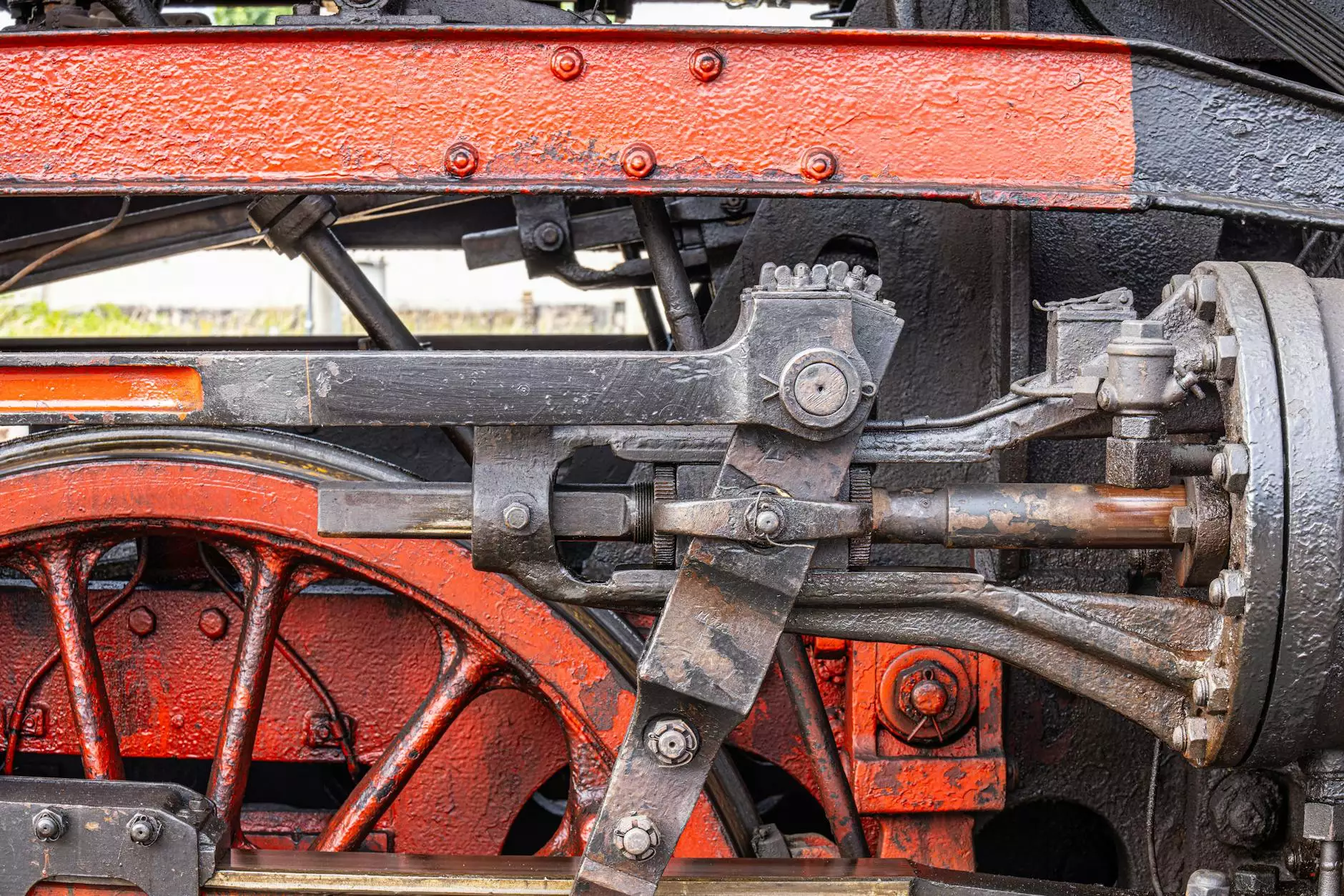The Parts of Piston Engine: An In-Depth Analysis

In the world of automotive engineering, understanding the parts of piston engine is crucial for anyone involved in vehicle maintenance, manufacturing, or repair. Piston engines, particularly diesel engines, are renowned for their durability and performance. In this article, we will explore the various components that make up a piston engine and their significance in overall engine functionality.
What is a Piston Engine?
A piston engine is a type of internal combustion engine where the combustion of fuel occurs within a confined space, causing a piston to move. This movement is converted into rotational motion, which ultimately propels vehicles. The diesel engine, a subtype of the piston engine, operates on diesel fuel and is widely used in various applications due to its efficiency and power output.
Key Components of a Piston Engine
The functionality of a piston engine is dependent on its many parts. Understanding these parts is essential for anyone involved in the maintenance or operation of diesel engines. Below is a comprehensive list of the critical components of a piston engine:
1. Cylinder Block
The cylinder block serves as the main structure of the engine, housing the cylinders and providing support for various components. It is crafted from robust materials like iron or aluminum to withstand high pressures and temperatures. The cylinder block plays a pivotal role in engine performance, influencing factors such as weight, heat dissipation, and overall engine integrity.
2. Pistons
Pistons are cylindrical components that move up and down inside the cylinders. They are driven by the combustion of fuel and air mixture, transforming the energy produced into mechanical work. Pistons must be engineered to have the right balance between strength and weight to optimize performance and fuel efficiency.
3. Connecting Rods
The connecting rods connect the pistons to the crankshaft. They convert the linear motion of the pistons into rotational motion, which is essential for powering the vehicle. The connecting rod must transmit high levels of torque while maintaining structural integrity, particularly under high-stress conditions.
4. Crankshaft
The crankshaft is a crucial component that converts the up-and-down motion of the pistons into rotational motion. It is a heavy, robust piece of metal that must withstand significant forces. The design of the crankshaft can affect the harmonic balance of the engine, impacting smoothness and performance.
5. Camshaft
The camshaft is responsible for opening and closing the engine's valves at the appropriate times during the engine cycle. It plays an essential role in controlling the intake and exhaust strokes, ensuring optimal air-fuel mixture and exhaust expulsion.
6. Valves and Valve Train
The engine's valves regulate the flow of air and fuel into the cylinders and the expulsion of exhaust gases. The valve train includes all the components necessary to operate the valves, including lifters, pushrods, and rocker arms. Proper functioning of the valve train is critical for engine efficiency and performance.
7. Fuel Injectors
Fuel injectors atomize fuel into the combustion chamber, mixing it with air for optimal combustion. The precision of fuel injectors significantly affects engine performance, emissions, and fuel economy. Modern diesel engines often utilize high-pressure common rail systems that improve efficiency and reduce emissions.
8. Cylinder Head
The cylinder head sits atop the cylinder block and contains the combustion chamber. It accommodates the valves, spark plugs (in gasoline engines), and fuel injectors (in diesel engines). The design and material of the cylinder head are paramount in maximizing engine performance and durability.
9. Gaskets
Gaskets are crucial for creating airtight seals between the engine components, such as the cylinder head and the block. They prevent coolant and oil from leaking, which is vital for maintaining the engine's efficiency and longevity.
10. Lubrication System
The lubrication system is essential for minimizing friction between moving parts, ensuring smooth operation and preventing wear. It circulates oil throughout the engine, especially to the crankshaft, pistons, and camshaft.
11. Cooling System
The engine's cooling system regulates the operating temperature by dissipating heat generated during combustion. A well-designed cooling system is crucial in preventing engine overheating, which could lead to severe damage over time.
Importance of Quality Parts in Piston Engines
Using high-quality parts is vital for ensuring the longevity and performance of piston engines. Subpar components can lead to premature wear, decreased efficiency, and increased maintenance costs. Here are some reasons why quality matters:
- Performance: Quality parts contribute to better engine performance, enhancing power output and responsiveness.
- Durability: High-quality components are designed to withstand the rigorous demands of engine operation, reducing the likelihood of failure.
- Fuel Efficiency: Efficient parts work harmoniously to optimize fuel usage, decreasing overall operational costs.
- Emissions Control: Superior components help maintain proper fuel combustion, reducing harmful emissions and supporting environmental sustainability.
Main Challenges Faced by Diesel Engine Parts Suppliers
The market for diesel engine parts suppliers is competitive, and there are several challenges they face, such as:
1. Supply Chain Disruptions
Global events can affect the supply of raw materials and components, making it challenging for suppliers to meet demand. Maintaining flexible supply chains and developing local partnerships can mitigate these issues.
2. Regulatory Compliance
Diesel engines are subject to stringent emissions regulations. Suppliers need to ensure their parts comply with these regulations, which can involve investment in R&D for cleaner technologies.
3. Technological Advancements
Keeping up with technological changes is vital. Suppliers must constantly innovate and update their product offerings to remain competitive in a rapidly evolving market.
4. Customer Expectations
Modern consumers expect high-quality products delivered quickly. Suppliers must meet these expectations while maintaining competitive pricing, which requires efficient logistics and production processes.
Conclusion
In conclusion, the parts of piston engine are vital to the function and efficiency of diesel engines. Understanding these components allows for better maintenance, improved performance, and informed purchasing decisions for both consumers and suppliers. As the industry evolves, staying abreast of technological advancements and focusing on quality will be key for success. Whether you are in the market for diesel engine parts or are a supplier, recognizing the importance of each component is crucial in today's competitive landscape.
For anyone looking for reliable parts, client-diesel.com offers a comprehensive selection of diesel engine parts and boasts a strong reputation in the spare parts supply sector. Leveraging quality components alongside a strong understanding of engine dynamics will pave the way for enhanced performance and durability in your vehicle or machinery.









